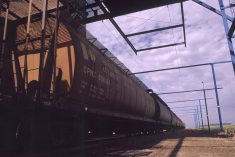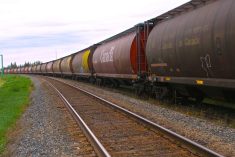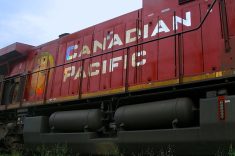Reuters — Canadian National Railway (CN) said on Tuesday its CEO Jean-Jacques Ruest will retire at the end of January, following investor demands for his exit after the railroad operator’s failed bid for Kansas City Southern.
TCI Fund Management, which owns five per cent of Canadian National, in August pitched former Jim Vena — a former chief operating officer at Union Pacific and, previously, at CN — for the top job in place of Ruest, and on Tuesday urged the company to secure his leadership.
Read Also

India slaps 30 per cent import duty on yellow peas
India has imposed a 30 per cent duty on yellow pea imports with a bill of lading date on or after Nov. 1, 2025.
“Dismissing the same CEO that the board put in place just three short years ago is a good start, but it does not address the fundamental problem of a lack of leadership,” TCI founder Chris Hohn said in a statement.
TCI had earlier cited the company’s “ill-conceived” efforts to pursue the Kansas City merger for demanding Ruest’s ouster.
Montreal-based CN said Tuesday it has set up a committee to look for a new CEO.
Last month, it lost a bidding war to create the first direct railway linking Canada, the U.S. and Mexico as rival Canadian Pacific Railway (CP) inked a US$27.2 billion cash-and-stock deal to buy Kansas City.
CN, the country’s largest railroad operator, on Oct. 1 criticized TCI for “misleading” characterizations of the company’s performance and an “inaccurate” portrayal of the financial risks tied to CN’s Kansas City bid.
CN at the time also criticized TCI for having a “glaring conflict of interest” as the largest shareholder of Calgary-based CP, and for “trying to assert effective control over CN without presenting a credible plan to create superior or sustainable value.”
Ruest, who had set up a plan to improve CN’s profitability after the failed bid, said Tuesday “the company is well-positioned to continue to thrive following my retirement.”
In the third quarter ended Sept. 30, CN’s adjusted profit jumped 9.5 per cent, driven by a surge in coal, petroleum and chemicals shipments.
But CN’s operating ratio, a key profitability metric for investors, worsened to 62.7 per cent from 59.9 per cent a year earlier.
— Reporting for Reuters by Abhijith Ganapavaram and Amruta Khandekar in Bangalore. Includes files from Glacier FarmMedia Network staff.












